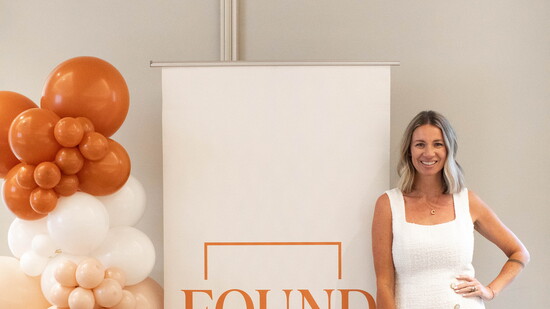Coley Arnold didn’t just stumble into entrepreneurship—she built it from the ground up, without a business degree, without a roadmap, and without waiting for permission. She co-founded Junk in the Trunk Vintage Market, which grew into a massive multi-city event, and later expanded with The Vintage Arcadia.
After a decade of building and learning the hard way, Coley saw a problem: women in business lacked real community. So she built one.
As the founder of Foundress, she’s helping women turn self-doubt into confidence, grow unapologetically, and succeed without needing to have it all together.
Here, she shares her journey—from solo hustle to launching a movement that empowers women to own their power.
What inspired you to start Foundress?
Honestly? Frustration. When I was growing Junk in the Trunk, I was learning everything through trial and error. I didn’t have a background in business, and I didn’t even know who to ask for help.
Networking events felt impersonal—just business cards, no real connection. I craved a space where women truly supported each other.
The moment I knew Foundress needed to exist was when three different women reached out asking to grab coffee and pick my brain. I don’t usually say yes to those requests—I have four boys and was running multiple businesses at the time—but something nudged me to go.
I sat with each of them, listened to their dreams, and at the end, they all said, Thank you for giving me permission. That hit me. They didn’t need advice—they needed someone to tell them it was okay to go after what they wanted. I left those meetings and thought, Women don’t need permission. They need a community that empowers them to give it to themselves.That’s when I knew I had to create Foundress.
Before Foundress, what was your career like?
I co-founded Junk in the Trunk Vintage Market in 2011, and it took off faster than we knew how to handle. It started as a small backyard market and grew into one of the biggest vintage markets in the Southwest, with thousands of shoppers, vendors, and a die-hard following.
Back then, social media was the wild west, and we grew our brand to over 100K followers before Instagram’s algorithm became pay-to-play. We figured out marketing, community-building, and scaling a business the hard way—by doing it.
Then, in 2020, I opened The Vintage Arcadia, a retail, restaurant, and event space. And guess what? A global pandemic wasn’t in the business plan. I had to learn how to pivot fast to survive. That experience taught me resilience, problem-solving, and how to lead through uncertainty—skills I use daily in building Foundress.
What was the biggest challenge in launching Foundress?
Stepping out on my own. I sold my other businesses in 2024, which meant I was starting from scratch. There was no safety net, no built-in brand awareness.
The hardest part was trusting myself. I had to learn that no one was coming to save me. If I wanted this to succeed, I had to bet on myself every single day.
How has Foundress evolved?
At first, I created it for me—I needed a space where I could connect with other women and grow my own business. But then I saw just how much women needed this.
Foundress is more than networking—it’s a business accelerator, mastermind, and sisterhood. Women gain strategy, support, and the confidence to own their worth and lead boldly.
What’s a common misconception about starting a business?
That you have to have it all figured out. Spoiler alert: no one does.
The most common emotion in business is imposter syndrome. If you’re feeling it, that means you’re growing.
What’s the #1 mistake female entrepreneurs make?
Trying to do it alone. Women thrive in community. Ask for help.
Time management is always a struggle—what’s your approach?
Manage yourself. If you can’t lead yourself, you shouldn’t lead a business.
How do you handle self-doubt?
I expect it. If I’m not feeling self-doubt, that means I’m not pushing myself hard enough.
What’s the key to building real connections?
Give more than you take. Instead of thinking, What can I get from this person? ask, How can I help them? Relationships—not transactions—build businesses.
Advice for women struggling to stand out in their industry?
Stop trying to be better than everyone. Be different. Do things your way, and the right people will find you.
How can women advocate for themselves?
Set boundaries. Have a “friends & family” discount that you control, so you don’t feel pressured to give away your work for free.
What’s one unconventional tip that’s helped you in business?
Tits up, you’ve got this. At the end of the day, confidence is everything.
foundress.co
"Give more than you take. Instead of thinking, What can I get from this person? ask, How can I help them? Relationships—not transactions—build businesses."
